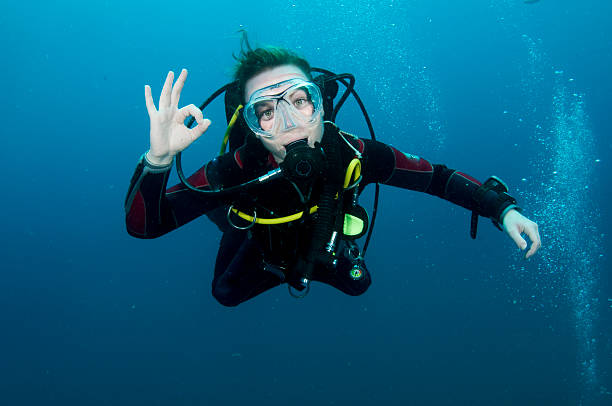
So you wishing to acquire a scuba diving certification yet you are not sure about the process? All the processes and details are summarized here. Scuba diving is a leisure activity and game that you will enjoy for several years to come. Nothing is as impressive as floating effortlessly on the water and drifting alongside other sea creatures as you explore the marine world.
What does scuba diving certification entail? For you to go scuba diving with any reputable dive shop, you will be required to possess a certification (otherwise known as c-card). Obtaining this card requires you to take a certificate program and passing it. When you’ve completed your scuba diving courses and passed, you’ll be provided with your c-card, and you’ll be ready to go.
The two leading scuba diving certification agencies are NAUI and PADI. Other popular agencies are SSI and YMCA. The dive store where you’re taking your classes ought to be connected with one of those bureaus. Open water diver is the most popular certification awarded to recreational divers. After completing the diving courses and passed the appropriate tests, you will be given the lifetime certification in the form of a c-card.
Course requirements.
As far as age is concerned, you need to have attained the age of ten for you to take the diving course and acquire PADI certification. Applicants under 15 years are awarded the PADI Open Water Diver Certification which is later upgraded after passing the minimum age. On the other hand, NAUI certification is given to applicants above 12 years of age.
You also need to be of good physical shape and must be comfortable in water environments. To ascertain these requirements, you may be required to obtain medical clearance from your doctor. The time you may take to acquire these certificates varies with the form of certification or the avenue you’ve used.
The Procedure.
You will need to confirm that you meet the specific requirements of scuba diving. With current advances in dive training and medicine, everyone regardless of age and size can safely learn the art of diving. Several conditions, however, must be fulfilled before registering for scuba diving courses.
The next step involves choosing your preferred scuba diving training program. Just like any other sport or outdoor activity, diving comes with its dangers. The risks can be managed once you learn to adhere to the security instructions and how to use the gear. A majority of scuba diving training facilities provide both test dives and open water courses. Once you’re done with the courses, you can embark on purchasing or renting the dive gear. As an activity that highly depends on the relevant equipment, you’ll need to have a complete set of well-maintained scuba gear.
With the Ideal equipment, you will be in a position to learn the dive theory. This includes nitrogen absorption, buoyancy fundamentals, decompression limits, and security stops. With a clear understanding of the basic dive theory, you can now test your diving skills with a certified instructor.